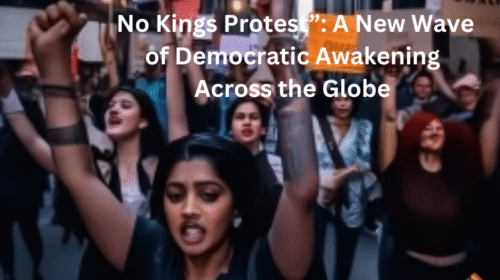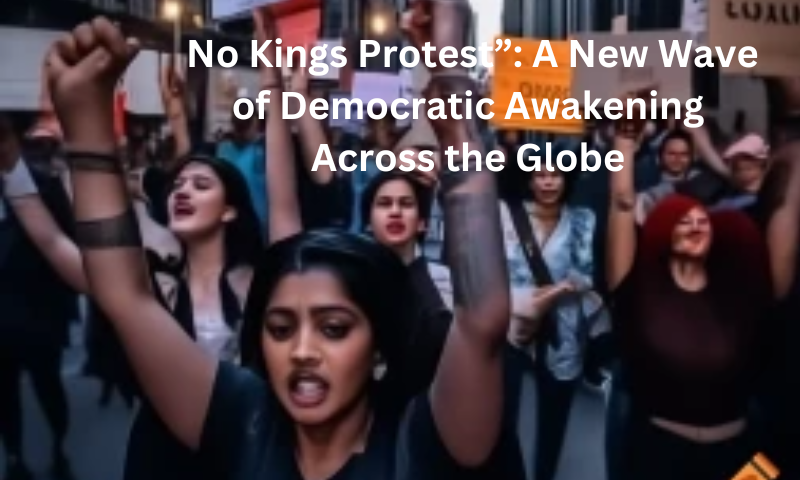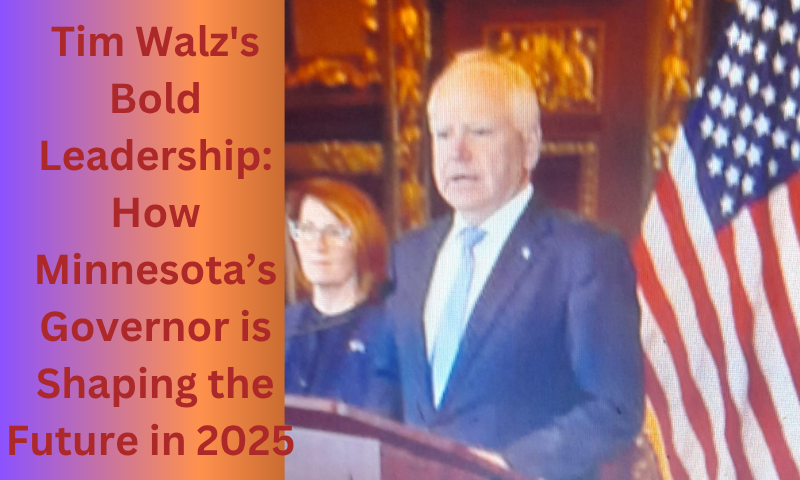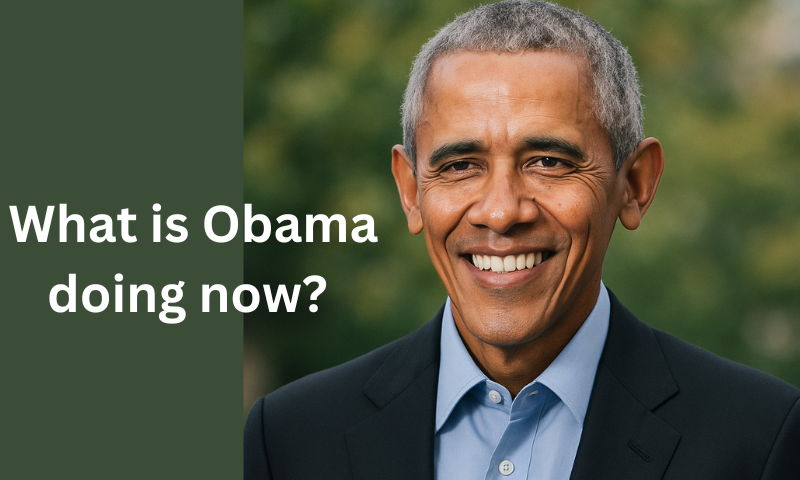No Kings Protest”: A New Wave of Democratic Awakening Across the Globe
“No Kings” is a powerful new phrase that has been reverberating in cities all across the world in recent months. The “No Kings Protest” has quickly grown from a specialised internet movement to a more widespread, international wave of political expression, ranging from youth rallies in Europe to open demonstrations in regions of Asia, Africa, and even the Americas. However, what is the “No Kings Protest” and why is it becoming more popular right now?
What Is the “No Kings” Movement?
Fundamentally, the “No Kings” protest is about more than merely opposing monarchy. It is a symbolic appeal to oppose elitism, authoritarianism, and inherited authority in all of its manifestations, be they corporate, cultural, or political. The term, according to protesters, represents a fresh call for accountability, equality, and openness in leadership.
Though it has its roots in the Enlightenment and early democratic revolutions, the phrase “No Kings Protest” is being used much more widely in the modern world. It now challenges the unbridled authority of unelected institutions, political dynasties, and billionaires—the contemporary counterparts of monarchs.
Where It All Started
Although it’s difficult to pinpoint the protest’s specific genesis, many attribute it to the Middle East and South Asia, where youth-led protests against monarchies, authoritarian governments, and influential ruling families have become increasingly common in recent years. During a nonviolent protest for economic reform in Jordan in early 2025, a group of student activists held up a banner that simply read, “No Kings.” This event had a significant influence. The picture went viral.
The goal was less monarchy and more unchallenged elite control, and soon after, identical words started to emerge on protest placards in Spain, Thailand, and even in democratic nations like the US and the UK.
A Protest Against Hereditary Power and Elitism
The majority of demonstrators are not calling for the outright dismantling of all monarchies or conventional institutions, despite the slogan’s catchiness. Rather, they are using the phrase to criticise systems in the media, industry, and government that permit power to be inherited rather than earned.
In Thailand, the fight against the monarchy’s hold on politics has been spearheaded by students. In the midst of a cost-of-living crisis in the UK, “No Kings Protest ” has surfaced alongside demonstrations challenging the royal family’s public support. It has been used in the United States to oppose political dynasties like as the Clintons and Bushes, as well as big businesses whose CEOs have unbridled power.
Economic disparity is another issue that this demonstration highlights, as the wealth gap between the ultra-rich and the typical person has significantly increased over the last ten years. Billionaires, oligarchs, and even some IT pioneers, according to activists, have devolved into “kings without crowns.”
Social Media and Symbolism
The “No Kings” slogan’s viral nature has aided in the movement’s international expansion. Protesters are employing strong imagery, frequently a crown with a red “X,” and minimalist artwork to spread their message on TikTok, Instagram, and X (previously Twitter).
The protest has grown decentralised and nonpartisan, which is remarkable. It is not led by a single person or group. A increasing dissatisfaction with systems that appear locked off, manipulated, or inattentive to regular people is a common sentiment.
Governments React
Authorities have reacted with worry in numerous nations. Protesters have been arrested or subjected to harassment in monarchies such as Saudi Arabia, Jordan, and Morocco. Governments in democracies are more circumspect and frequently brush off the protests as “youth discontent” or internet noise.
However, analysts caution that it might be a mistake to dismiss the “No Kings Protest” rallies. Political analyst Dr. Eliana Mercado of the London School of Economics states:
“What we’re seeing is a call for contemporary legitimacy as well as resistance. People choose leadership that is founded on justice, openness, and merit rather than ancestry or wealth.
A Moment or a Movement?
Whether the “No Kings” protest turns into long-lasting political reform is still up in the air. Some detractors contend that it lacks a clear agenda because it is too nebulous, while others think that its flexibility is exactly what makes it powerful. It serves as an umbrella for a variety of reform initiatives, including anti-corruption, income redistribution, and democracy renewal.
The protest also reflects a sense of disenchantment around the world, including dread of future instability, weariness with theatrical politics, and mistrust of institutions. The “No Kings” phrase is therefore a warning as much as a protest.
Final Thoughts
People all throughout the world are rethinking power—who has it, how they gained it, and what gives them the right to maintain it—regardless of whether the “No Kings” protest becomes a passing hashtag or a defining ideology of this generation.
And there is a serious challenge to the status quo in that straightforward yet powerful phrase: “No Kings Protest.”





